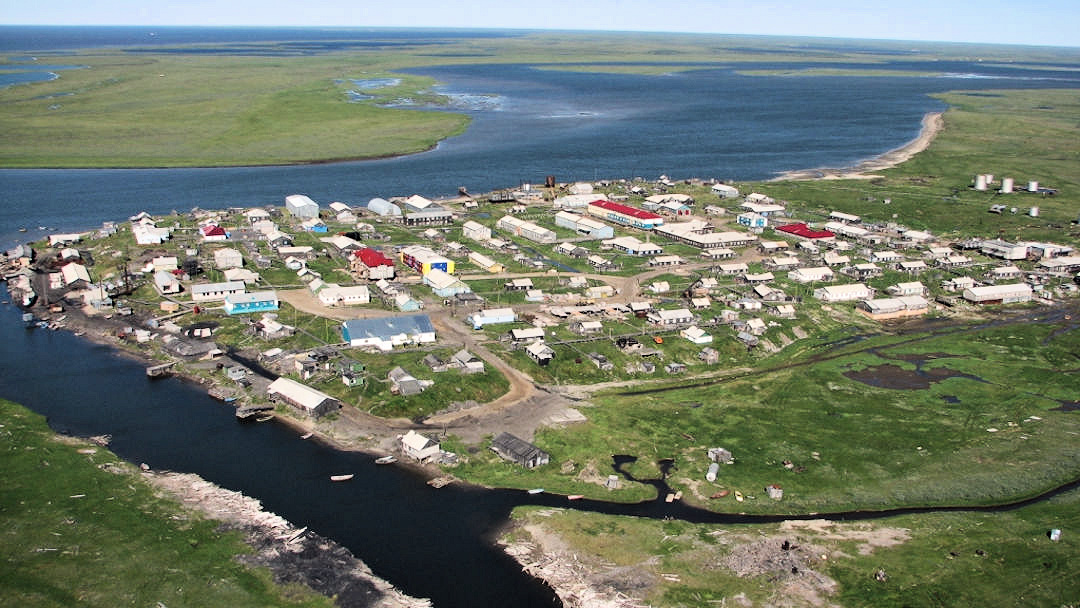
The huge “Arctic LNG 2” of Russian natural gas producer Novatek is a prestige project in terms of natural gas production. Work on the giant project has been underway on the Gyda Peninsula in the Yamal-Nenets region since 2018. The final financing plans were only approved last year after the Russian state withdrew. Now, several export credit agencies from Europa and Japan have shown interest in providing financial support, with the relevant governments providing guarantees for lending. The whole thing, however, contains some explosive points, both politically and ecologically.
As reported by Reuters, in addition to The Russian Sberbank, the Japanese Bank for International Cooperation (JBIC) and export credit agencies from France, Germany and Italy are “strongly interested” in the project. Since Novatek is not a state-owned company, the investments are not subject to the sanctions imposed by the EU on Russia since 2014. The size of the investments varies: while the Japanese would provide around US$ 2.5 billion in the form of credit finance, from the Italian SACE would be around US$ 1 billion, the French Bpifrance around US$ 700 million, the German Euler Hermes US$ 300 million and the Chinese China Development Bank around US$ 5 billion. These financial institutions usually cover the costs of the Novatek project on behalf of the respective governments through guarantees and can thus support domestic companies, which would be involved in the project.

Several political as well as ecological points are explosive about the whole thing. On the one hand, relations between Russia and the European states are even more tense after the poisoning of Kremlin critic and opposition politician Alexander Navalny. The tug-of-war over the Baltic Sea pipeline “Nord Stream 2”, another major energy project of Russia, has also strained relations between Europe and Russia. The fact that certain European states are now considering financing another major project seems quite strange.
Another aspect that puts the possible participation in a skewed light is of ecological nature. The climate targets declared by the EU in 2018 foresee a 40 percent reduction in greenhouse gas emissions by 2030 and a climate-neutral economy by 2050. However, these ambitious goals are at odds with the idea of financially supporting a major project such as the Arctic LNG 2. Additionally, of the planned 20 million tonnes of liquid natural gas, which are to be shipped at full capacity utilization per year, around 80 percent will go to the Asian market. And it seems very strange that European countries, on the one hand, want to promote a reduction in carbon dioxide and adherence to the Paris climate agreement, while at the same time wanting to finance the extraction of fossil fuels for other markets with billions in contributions. Particularly ironic: the extraction area is located in an region heavily affected by climate change and warming. Because the peninsula Gyda consists to a large extent of permafrost soil, which thaws more and more. The mayor of the municipality of Gyda witnessed first-hand how bad the situation is and posted it on social media: By thawing the permafrost soil, a 200-metre-wide belt near the village slipped away and flowed into the sea as mudslides, as The Independent Barents Observer reports.
It is not clear what will happen after the publication of the explosive papers. However, after the news became known, the French Bpifrance stated that no decision had been taken in support yet. The other export credit agencies have not yet commented. Nothing was known from Novatek and its partners in the Arctic LNG 2 project. Final decisions depend on governments and could still be negative, despite positive recommendations from the agencies.
Dr Michael Wenger, PolarJournal
More on the subject:







